PET Bottles into fibers -Will Ultra-Poly revolutionize automotive sustainability? 18-08-2023 - Arhive
PET Bottles into fibers
Crude Oil Prices Trend

Crude Oil Prices Trend by Polyestertime
Evergrande’s Bankruptcy Declaration Sends Shockwaves Through Global Markets
In a seismic development reverberating across global financial landscapes, China’s colossal real estate entity, Evergrande, has officially filed for bankruptcy in New York, as reported by US media outlets. This pivotal moment arrives after months of grappling with financial turmoil, culminating in a desperate attempt to salvage the company through a multi-billion-dollar restructuring scheme aimed at repaying its international creditors. The conglomerate had found itself ensnared in a web of liabilities exceeding an astounding $270 billion.
Evergrande, once a titan of the Chinese real estate sector boasting unmatched sales figures, succumbed to its insurmountable debt burden, effectively succumbing to bankruptcy in 2021. This marked a watershed event, initiating the most profound crisis ever documented in China’s real estate domain. March of the current year bore witness to Evergrande’s unveiling of an elaborate restructuring blueprint, striving to fulfill its obligations to creditors scattered across the globe. PET Bottles into fibers
Seeking refuge in the US legal framework, Evergrande sought the protective embrace of Chapter 15 creditor protection, a provision tailored to navigate insolvency scenarios spanning multiple jurisdictions.
The perturbation within China’s real estate sector casts an ominous shadow, with the potential to set off a domino effect across global financial markets. Recognizing the gravity of the situation, China’s central bank endeavored to instill confidence by committing to timely adjustments and optimization of property policies. This move, articulated within the second quarter monetary policy report, was intended to provide a reassuring note amidst the tempestuous financial climate. Regrettably, its deployment coincided with the unfolding turbulence in the sector, caught amidst the contagion of tensions interlinking real estate enterprises and trust operators.
Further exacerbating Evergrande’s predicament, its subsidiary, Hengda Real Estate, came under scrutiny from the China Securities Regulatory Commission, the apex regulatory body overseeing securities trading. PET Bottles into fibers
This agency raised concerns regarding potential manipulation of financial data by Hengda, a revelation that further eroded confidence in the conglomerate’s stability. The narrative of Evergrande’s downfall traces back to its ballooning debt, which had burgeoned beyond an astonishing $300 billion. A pivotal juncture arrived when the Communist leadership, confronting this unsustainable debt spiral, constricted the flow of bank loans to Evergrande, hastening the company’s descent towards its eventual demise.
The unfolding scenario saw Evergrande resorting to a tactical retreat by deferring the meeting of creditors regarding offshore debt restructuring. The postponement, from August 23 to August 28, underscored the corporation’s desperate bid for a lifeline to extricate itself from the mire of insolvency. Concurrently, Chinese law enforcement authorities, keenly aware of the potential for unrest stemming from this financial turmoil, intervened by visiting investors associated with Zhongzhi Enterprise Group, a symbol of the shadow banking sector.
As the dust continues to settle on Evergrande’s bankruptcy filing, the global financial community is grappling with the aftershocks that threaten to reverberate across borders. The story of Evergrande serves as a poignant reminder of the interconnectedness of the modern financial world, where the downfall of a real estate behemoth in China can send shockwaves through markets worldwide. PET Bottles into fibers
The unfolding repercussions will be closely monitored as international institutions, investors, and economies brace for the unpredictable cascades emanating from this monumental event.
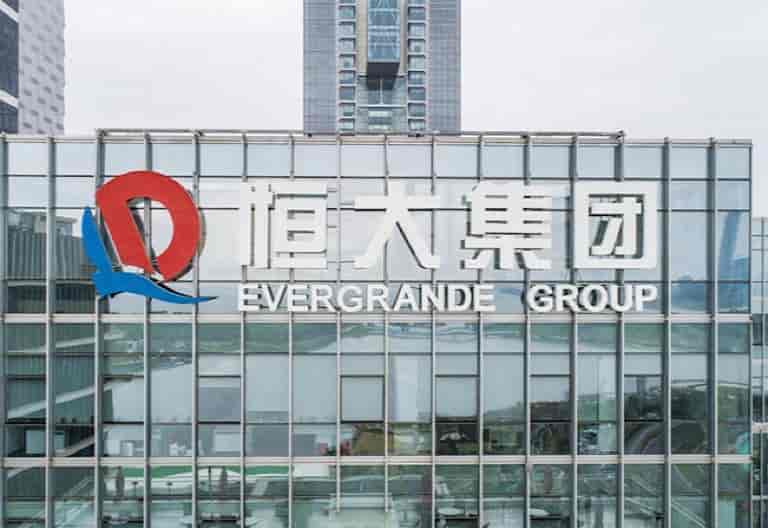
Transforming PET Bottles into Advanced Fibers: The Unifi Journey
In an era marked by heightened environmental awareness, the journey of a PET bottle doesn’t end when it’s emptied and discarded. Unifi, a pioneering company, has taken upon itself the vital task of collecting used plastics, specifically PET bottles, predominantly from coastal areas and developing regions. By intercepting plastics before they reach the ocean, Unifi’s mission is to reshape the fate of these materials, propelling them toward a new life as high-tech fibers.
The heart of Unifi’s transformation process lies in its collaboration with Lindner, a recognized leader in shredding solutions. Back in 2018, when Unifi sought to establish an efficient shredding process, it turned to Lindner’s innovative technology. This partnership marked a pivotal moment in Unifi’s sustainability journey, setting the stage for a holistic recycling process that embraces plastic and textile waste alike.
Central to this process are three Lindner Micromat 2000 shredders, operating tirelessly around the clock, every day of the year. These machines play a crucial role in the initial phase of the transformation process. As plastics and textile waste make their way through the Micromat 2000, they are meticulously prepared for the subsequent stages of extrusion, spinning, and fiber winding.
This meticulous preparation ensures that the fibers derived from this process meet the highest standards of quality and performance. PET Bottles into fibers
Unifi’s commitment to sustainability is further underscored by its strategic approach to material sourcing. The plastics used in this endeavor are collected from within a radius of 50 kilometers around waterways and coastal regions, primarily in developing countries. By sourcing materials from these regions, Unifi not only prevents plastics from entering the ocean but also addresses a critical environmental concern in areas where waste management infrastructure may be limited.
At the heart of Unifi’s operations lies the creation of Repreve Our Ocean recycled fiber. This cutting-edge fiber is a testament to the possibilities that arise when innovative technology converges with environmental stewardship. By harnessing the power of Lindner’s shredding solutions, Unifi not only advances its sustainability goals but also contributes to a circular economy by transforming used plastics into a valuable resource.
The collaboration with Lindner goes beyond technology; it embodies a shared commitment to responsible production. Lindner’s Micromat series of shredders are meticulously designed to cater to the intricate demands of plastics recycling. Equipped with robust, high-torque motors, these shredders excel in processing post-commercial and post-consumer plastics.
Their design prioritizes both efficient shredding capabilities and the optimization of uptime, minimizing disruptions and streamlining maintenance tasks. PET Bottles into fibers
The impact of Unifi’s and Lindner’s partnership reverberates far beyond the recycling process itself. The fibers generated from this collaborative effort find their way into products produced by some of the most globally recognized brands. Renowned names like Pottery Barn, Levi’s, and Tom’s Shoes have integrated these fibers into their offerings, aligning their business practices with a commitment to sustainability and responsible sourcing.
In conclusion, Unifi’s remarkable journey from PET bottles to high-tech fibers stands as a testament to the transformative power of innovation and collaboration. By intercepting plastics before they become ocean pollutants, Unifi redefines the trajectory of these materials, channeling them toward the creation of Repreve Our Ocean recycled fiber. With Lindner’s state-of-the-art shredding solutions as a cornerstone, Unifi not only meets its sustainability goals but also ignites a ripple effect that resonates across industries and brands. As the world increasingly embraces the urgency of environmental stewardship, this partnership sets an inspiring example of turning challenges into opportunities for a greener, more sustainable future. PET Bottles into fibers
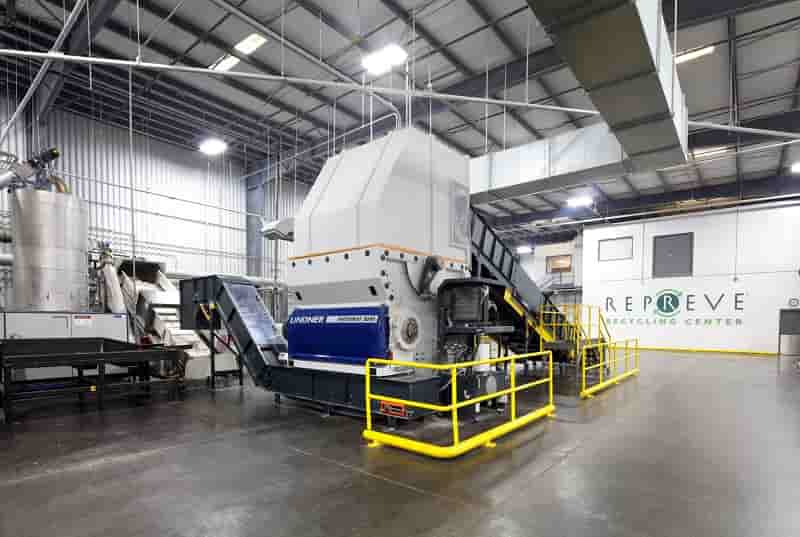
Nexam Chemical Secures Patent for Advanced Polyethylene Recycling Technology
Nexam Chemical, a pioneering additive manufacturer headquartered in Sweden, has achieved a significant breakthrough in the realm of sustainable plastics with its revolutionary Reactive Recycling technology. This innovative process involves the utilization of a suite of products designed to enhance the quality and viability of recycled polyethylene (rLDPE, rLLDPE, rHDPE). The centerpiece of this technological marvel is the Nexamite R301-305 additives, which have been ingeniously integrated into the company’s broader Reactive Technology framework. The crux of this advancement rests in the additives’ ability to be seamlessly incorporated into the extrusion process alongside the polyethylene to be mechanically recycled. PET Bottles into fibers
News of a remarkable milestone recently arrived from the European Patent Office, affirming its intention to bestow a patent upon Nexam Chemical for its groundbreaking Reactive Technology as it pertains to polyethylene recycling applications. This pivotal development closely follows the patent acquisition for the identical technology with respect to polypropylene (PP) applications, a feat accomplished earlier this July.
Christer Svanberg, the esteemed Chief Technology Officer at Nexam Chemical, lauded this remarkable achievement, stating, “Nexam once again breaks new ground and broadens the field of use for Reactive Recycling and thus contributes to more sustainable solutions.” He further elucidated the transformative impact of this technology by asserting that, when combined with Nexam’s comprehensive portfolio of plastic recycling solutions, this methodology has the potential to unlock a realm where even the largest and most formidable plastic recycling streams can be harnessed to create a wider array of products than was once deemed possible. PET Bottles into fibers
Polyethylene, recognized as the most ubiquitous plastic on a global scale, commands an impressive share, accounting for over 30% of the total worldwide plastic production. The successful implementation of Nexam Chemical’s novel polyethylene recycling method is poised to substantially curtail the reliance on virgin plastic in the manufacturing of new products, thus emboldening the sustainability agenda.
The implications of Nexam’s additives on recycling enterprises are indeed noteworthy. Reports suggest that the incorporation of these additives adeptly tunes the flow characteristics of the recycled polyethylene, aligning them with the specific requirements of various application processes. Moreover, the process amplifies the processability and overall quality of the recycled polyethylene. Nexam Chemical underscores the environmentally conscious nature of this material, which is devoid of hazardous elements and peroxide.
In the realm of converters and manufacturers, Nexam’s innovative solutions bestow a multitude of advantages. Notably, these technologies facilitate the incorporation of larger quantities of recycled polyethylene into final applications. The resultant effect is an augmentation in the melt strength of the materials, thereby enhancing the mechanical properties of the finished products. This cascade of benefits promises to revolutionize the production landscape, enabling businesses to embrace a more sustainable and eco-friendly approach to manufacturing. PET Bottles into fibers
As society confronts the critical imperative to reduce plastic waste and transition toward more sustainable practices, Nexam Chemical’s pioneering advancements in the realm of plastic recycling stand as a beacon of hope. By securing a patent for its Reactive Technology for polyethylene applications, the company has fortified its position at the vanguard of sustainable innovation. The magnitude of this achievement is underscored not only by the potential to curtail plastic waste but also by the prospects of transforming recycling streams into vibrant sources of raw material for a multitude of industries. The global push for a greener and more sustainable future has found a steadfast ally in Nexam Chemical’s resolute dedication to redefining the boundaries of possibility in the realm of plastic recycling.

Covestro Achieves Significant Milestone in Chemical Recycling Advancement
Covestro, a prominent raw materials producer, has taken a momentous step forward in the advancement of its chemical recycling technology, according to an official statement released on August 16th. The company has successfully transitioned its specialized chemolysis process, specifically tailored for polycarbonate, from laboratory scale to a robust stage, and is now channeling efforts towards optimizing this process as it progresses towards industrial implementation.
This innovative form of chemical recycling involves the conversion of plastic materials back into their fundamental monomers, essentially the elemental building blocks of plastics. These monomers can then effectively replace primary fossil raw materials in the production of new, superior-quality polymers. Dr. Thorsten Dreier, Covestro’s Chief Technology Officer, emphasized the company’s commitment to responsible management of plastics, especially as they reach the end of their product life cycle. He stated, “As a manufacturer of plastics such as polycarbonate, we naturally have a responsibility in dealing with these important materials, including at the end of their product life. We need to use end-of-life plastics as a resource and reuse them as alternative raw materials to close the loop.” PET Bottles into fibers
While mechanical recycling of polycarbonate already plays a significant role in Covestro’s recycling strategy, their chemolysis process serves as a valuable complement. This process is particularly advantageous as it can work with less pure waste streams, generating a direct precursor to polycarbonate that can be readily incorporated into the production of virgin-quality polycarbonate. This approach effectively closes the polycarbonate lifecycle without requiring additional extensive processing steps. Markus Dugal, Head of Process Technology at Covestro, affirmed the feasibility of this approach, noting, “Pre-sorted waste streams containing a product content of more than 50 percent polycarbonate can be recycled this way. This has been successfully demonstrated with various polycarbonate-containing plastic waste streams.”
The company’s ambitions extend beyond the laboratory. Covestro has already initiated the development of a continuous process, a pivotal next phase in their endeavor. A pilot plant, presently in the planning stages, will play a crucial role in gathering essential data and experiential insights that will drive the formulation of a viable process for subsequent upscaling to an industrial level. To fuel this endeavor, Covestro is prepared to invest millions of euros over the coming years. The chosen location for this groundbreaking pilot plant is Leverkusen, Germany, the home of Covestro’s headquarters.
Beyond its current achievements, Covestro is committed to exploring multiple avenues for recycling polycarbonate within its research laboratories. These include alternative chemolytic methods, recycling approaches involving enzymes that break down plastic, and innovative smart pyrolysis techniques. Promising alternatives will also undergo testing using the pilot plant infrastructure. PET Bottles into fibers
Covestro’s overarching commitment revolves around achieving complete circularity and striving to attain climate neutrality by 2035 (scope 1 and 2 emissions). Demonstrating its market significance, Covestro achieved sales of €18 billion in the fiscal year 2022. The company’s global footprint encompasses 50 production sites across the world, employing approximately 18,000 individuals in full-time equivalents, as of the end of 2022.
In summary, Covestro’s recent achievement in advancing chemical recycling technology to pilot scale showcases its unwavering dedication to sustainable solutions for plastic waste management. By effectively closing the polycarbonate cycle through innovative chemolysis processes, the company not only demonstrates its commitment to responsible resource utilization but also contributes significantly to the broader goal of achieving a circular economy.
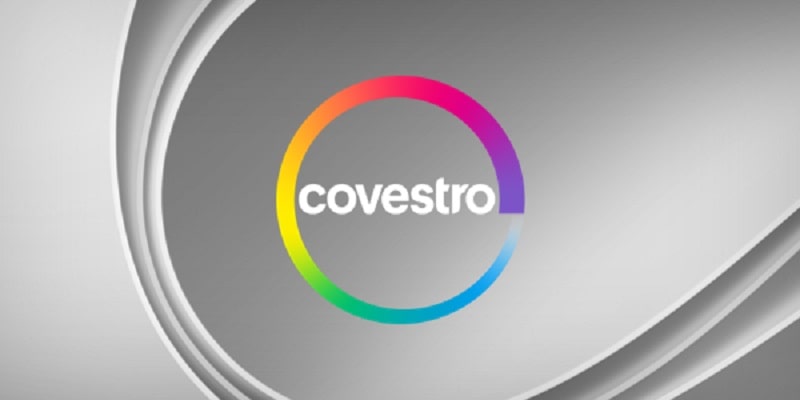
EQUATE Declares August MEG India Contract Price at USD 472 Amid Increment
In a recent statement, EQUATE, a prominent global monoethylene glycol (MEG) producer, unveiled its nominated price for the August 2023 MEG India Contract (ICP) at USD 472 per tonne CFR (cost and freight) for India’s Main Ports. This announcement reflects an upward shift in pricing strategy compared to the preceding month.
Notably, the August nomination showcases a substantial increase of USD 17 per tonne when compared to the July figure. This augmentation seems to be a strategic move aimed at capitalizing on market dynamics and enhancing the value proposition of EQUATE’s MEG within the Indian market. PET Bottles into fibers
A glance back reveals that EQUATE had previously declared its June 2023 MEG India Contract Price (ICP) at USD 501 per tonne CFR for India’s Main Ports. This decision, however, marked a decrease of USD 7 per tonne in contrast to the value nominated for May. This fluctuation in pricing underscores the intricate considerations that influence EQUATE’s pricing strategy.
EQUATE’s pricing decisions for its MEG India Contract reflect the interplay of various factors, including market demand, supply chain dynamics, and the broader economic context. The company’s ability to flexibly adjust its nominated prices demonstrates its commitment to maintaining a competitive edge while navigating the complexities of the global MEG market.
The MEG industry plays a pivotal role in diverse sectors, including textiles, packaging, and automotive, among others. As a crucial raw material, MEG’s pricing can significantly impact downstream industries’ cost structures and profitability. EQUATE’s transparent and predictable pricing approach enables its customers to plan their operations effectively and make informed decisions based on market trends.
EQUATE’s consistent communication of its MEG India Contract Prices underlines its dedication to fostering strong relationships with its stakeholders. By providing timely and accurate pricing information, the company enhances market predictability and facilitates fair transactions within the industry. PET Bottles into fibers
In conclusion, EQUATE’s announcement of the August MEG India Contract Price at USD 472 per tonne CFR India Main Ports signifies a calculated strategic move in response to prevailing market conditions. The upward adjustment in price from the previous month reflects the company’s adaptability to changing dynamics. As EQUATE continues to navigate the nuanced landscape of the MEG market, its transparent pricing approach remains instrumental in building trust, promoting fair trade, and contributing to the sustainable growth of the industry.
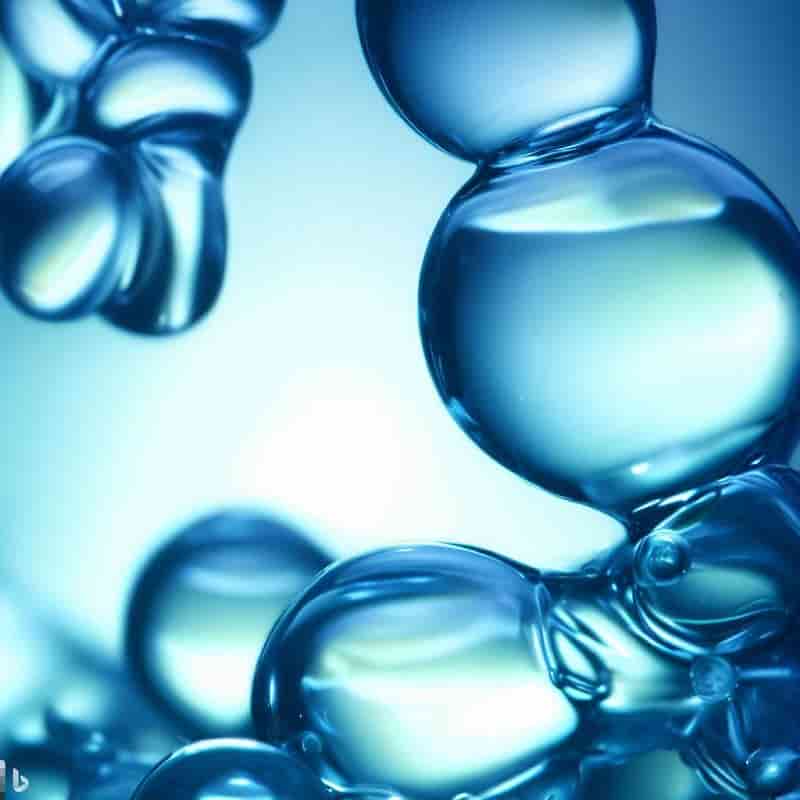
Ultra-Poly Revolutionizes Automotive Sustainability: Pioneering Bumper Recycling Initiative
Pennsylvania-based plastics recycler, Ultra-Poly, has unveiled a groundbreaking bumper recycling program that is poised to redefine sustainability in the automotive industry. Branded as a ‘first-of-its-kind bumper recycling program’, this initiative signals a significant stride towards a circular economy, aiming to reshape how car bumper covers are handled at the end of their life cycle. PET Bottles into fibers
Ultra-Poly, a proud member of the PLASTICS Industry Association, had previously contributed to the End of Life Vehicle (ELV) project. This endeavor shed light on challenges related to recycling bumper covers due to surface finish issues, rendering the material unsuitable for reprocessing into new fascia. However, Ultra-Poly saw untapped potential beyond these constraints. The company recognized the material’s value in creating other polypropylene compounds and discreet applications across the automotive and industrial sectors.
A partnership emerged between Ultra-Poly and Tier 1 automotive supplier Autoneum North America, Inc. The goal was to innovate a product that harnessed recycled bumper material as a robust substrate for a fibrous layer. This ingenious composite material was designed to be integrated into chassis components, serving the purpose of noise and vibration attenuation. Notably, the material’s inclusion in the International Material Data System (IMDS) underscored its legitimacy and industry-wide applicability.
Dan Moler, Vice President of Product Development and Engineering at Autoneum North America, Inc., expressed enthusiasm about the product’s alignment with the growing demand for recycled content in original equipment manufacturing (OEM). He emphasized that this innovation exemplified a holistic approach to sustainability, from reducing carbon footprint to engineering products with end-of-life recycling in mind. The vision was to propel the industry towards a circular economy, a journey requiring collaborative efforts from various stakeholders. PET Bottles into fibers
For auto body shops participating in the program, tangible advantages abound. The initiative streamlines the removal of bulky used bumper covers from waste roll-offs, subsequently curbing pull-frequency and associated costs. Furthermore, the recycling process ensures the irreversible destruction of the used fascia, eliminating any possibility of their reentry into the supply chain and the consequential compromise of product quality.
Ultra-Poly’s commitment to quality shines through in the material derived from recycled bumper covers. The resultant material boasts a harmonious blend of stiffness and toughness, meeting rigorous standards. The certification of having 100% post-consumer content further bolsters its appeal as a sustainable alternative. This eco-friendly solution is now available for sampling and adoption by automotive manufacturers and suppliers, signaling potential for broader application in the industry.
Kevin Cronin, Vice President of Sustainability and R&D, hailed the bumper recycling program as a pivotal step towards realizing a circular economy within the automotive landscape. The program’s far-reaching benefits extend beyond corporate entities to encompass auto body shops, recyclers, automotive part manufacturers, OEMs, and, most importantly, the environment. This collaborative ethos mirrors the intricate interdependencies within the automotive ecosystem. PET Bottles into fibers
Operating across five Pennsylvania locations, Ultra-Poly is a stalwart supplier, processing over a million pounds (approximately 454 tonnes) of recycled resin daily. The company’s multifaceted operations span from custom compounded polypropylene and polyethylene resins production to toll reprocessing services for plant-generated scrap. This diverse portfolio reflects Ultra-Poly’s unwavering commitment to sustainable practices across a spectrum of industries.
In summary, Ultra-Poly’s pioneering bumper recycling program has catapulted the automotive industry into an era of heightened sustainability. Through innovative partnerships, cutting-edge composite materials, and a steadfast commitment to a circular economy, this initiative reverberates as a beacon of hope for a greener future. As industry stakeholders join forces, the journey towards automotive sustainability gains fresh momentum, fostering a legacy that transcends corporate boundaries and stands as a testament to environmental stewardship. PET Bottles into fibers
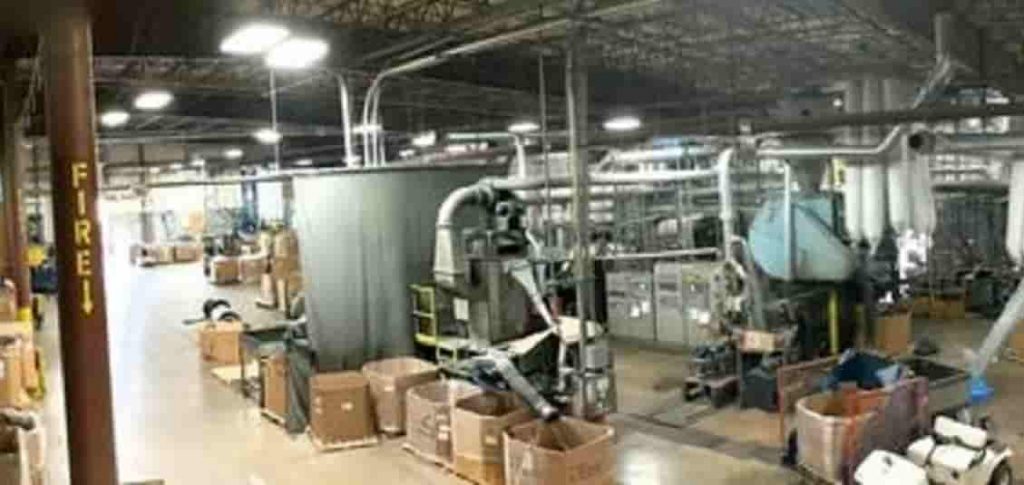
Resin Price : Bullish Market Gains Momentum
Spot resin continued to transact at a rapid pace the week of Aug. 7, and prices for all polyethylene (PE) and polypropylene (PP) grades added $0.01/lb, as the burgeoning bullish sentiment noted in last week’s Resin Price Report gained more steam.
Completed volumes at the PlasticsExchange again ran above the average seen so far in 2023, with PE the more actively traded material, reports the resin clearinghouse in its Market Update. Processors bought to attend to their near-term needs as well as to replenish inventories now that the bottom of this market cycle seems to be intact. The low end of the pricing spectrum has firmed up an average of 3 to 4 cents, even a nickel, depending on grade, according to the PlasticsExchange. Low-ball buyers continued to search for mid-July pricing in vain, and some reluctantly returned to pay up in price.
Some grades already sold out
Spot supplies have been noticeably tighter the past several weeks, and some producers were already sold out of certain grades for the month, prompting some resellers to tap the PlasticsExchange’s spot market for available railcars. PET Bottles into fibers
Truckload demand was strong, but resellers’ stocks were thin and buyers paid a premium for prompt material to fill in supply gaps from late purchases and slowly moving railcars.
Even as producers ramp up reactor rates, strong export demand from Latin America, Asia, and Europe has been soaking up surplus supplies, lifting the floor price in Houston, which in turn has lent support to the domestic spot Prime and off-grade markets.
All PE grades rise a cent
PE trading remained solid for a second straight week with robust volume changing hands across the PlasticsExchange’s marketplace. Ultimately, a 1-cent gain took hold on all PE grades because of stronger demand and limited fresh offers. Linear-low-density (LLD) PE for Injection and Film were the most preferred resins, while low-density (LD) PE resins for Film and high-density (HD) PE for Blow Molding were also quite active. Production issues have made high-molecular-weight Film grades scarce, thus complicating sales.
Exceptionally strong export sales with still unfilled incremental demand has allowed producers to raise Houston prices by several cents in August, with nearly similar gains seen in the domestic spot market. PET Bottles into fibers
The American Chemistry Council (ACC) has released preliminary supply/demand data for July, which revealed that PE exports smashed the previous all-time record, which had only stood since June, and that exports are approaching 50% of total PE sales. PE reactors have also been working harder; in July, they ran in the high 80s as a percentage of growing capacity and made more than five billion pounds of resin for only the second time in history. Domestic sales, however, have not quite kept up: In July they slipped 6% below the trailing 24-month average. All told, production exceeded sales and there was a modest increase in producers’ collective inventories, but given the accelerated export growth, the market still seems fairly snug. The PlasticsExchange recommends that interested parties subscribe to the ACC for more detailed fundamental data. PET Bottles into fibers
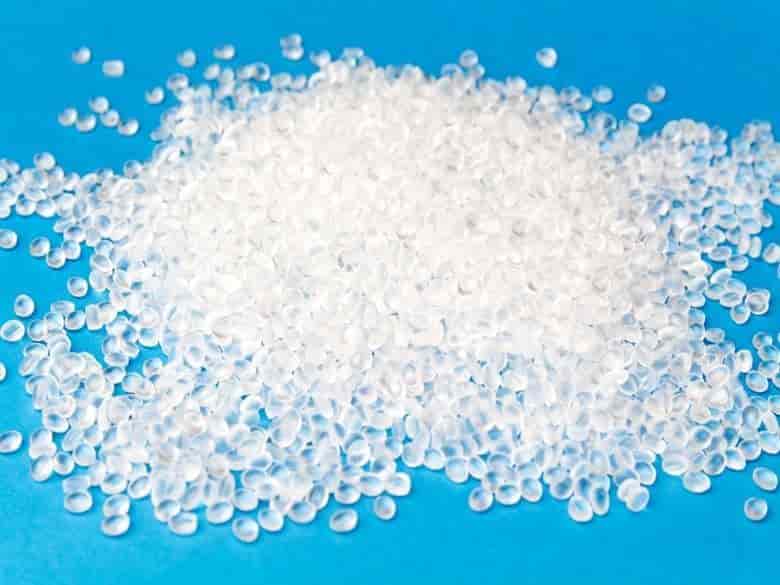
Adani’s USD 50 Billion Hydrogen Project Moves Forward Independently Amidst TotalEnergies’ Investment Uncertainty
In a resolute display of determination, the conglomerate led by billionaire Gautam Adani has announced its unwavering commitment to proceed with the monumental USD 50 billion green hydrogen initiative, irrespective of the uncertainty surrounding its collaboration with French partner TotalEnergies SE. The move comes in light of TotalEnergies’ decision to temporarily suspend its investment in the project due to allegations of fraud, as reported by Deccan Herald.
Robbie Singh, Chief Financial Officer of the Adani Group, communicated this steadfast stance during an investor call convened to discuss the first-quarter earnings of Adani Enterprises Ltd. Singh explicitly stated that the progress of the ambitious endeavor is not contingent upon the infusion of equity from TotalEnergies; rather, the Adani Group is fully committed to advancing the project even in the absence of the French conglomerate’s participation. PET Bottles into fibers
The collaborative vision between Adani and TotalEnergies had materialized last year when the French energy titan agreed to acquire a 25 percent stake in Adani New Industries Ltd (ANIL), the entity spearheading the green hydrogen venture. However, in February of the present year, TotalEnergies opted to put its planned USD 4 billion investment on hold, citing the need for an inquiry into allegations of accounting improprieties and stock manipulation raised by a US-based short seller. It’s important to note that Adani vehemently refuted these allegations. Despite the ongoing uncertainty surrounding TotalEnergies’ involvement, the Adani Group is forging ahead with its ambitions.
Addressing this significant development, Robbie Singh emphasized that the project’s trajectory remains undeterred by external dynamics. He asserted that the Adani Group is resolutely marching forward with the undertaking, maintaining the same intensity and pace of investment as initially planned. This proclamation underscores the group’s formidable determination to see the project through, signifying its belief in the transformative potential of green hydrogen and its commitment to sustainable energy solutions. PET Bottles into fibers
It’s worth recalling that Gautam Adani, the visionary behind the conglomerate, recently embarked on a diplomatic mission, meeting with Bangladesh Prime Minister Sheikh Hasina in Dhaka. This engagement followed the successful commencement of power supply from the Adani Group’s Ultra Super-Critical Thermal Power Plant in Godda, India, to Bangladesh. The Godda USCTPP not only marks the group’s entry into cross-border power projects but also represents India’s inaugural commissioned transnational power endeavor, characterized by the entire generated power being channeled to a foreign nation.
In essence, the Adani Group’s unwavering commitment to proceed with its USD 50 billion green hydrogen project, despite the uncertainties posed by TotalEnergies’ temporary withdrawal, underscores its resolute determination and strategic foresight. By reaffirming its intent to advance the project autonomously, the conglomerate sends a potent message about its conviction in the transformative potential of sustainable energy and its capacity to drive change even in the face of challenging circumstances.
This bold move positions the Adani Group at the forefront of the green energy revolution, catalyzing advancements that hold the promise of reshaping the global energy landscape for the better. PET Bottles into fibers
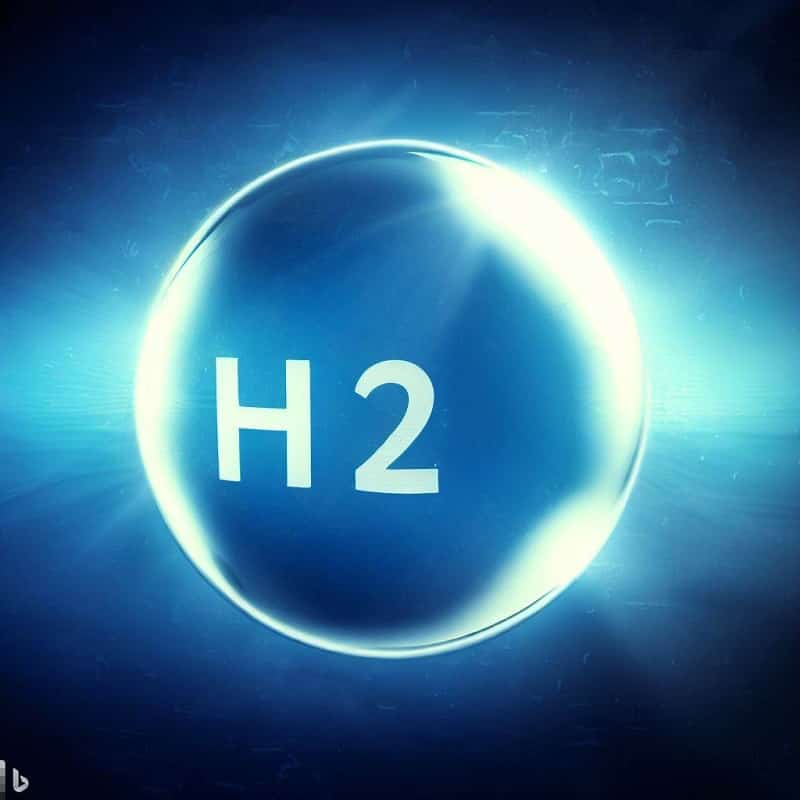
PET Bottles into fibers
